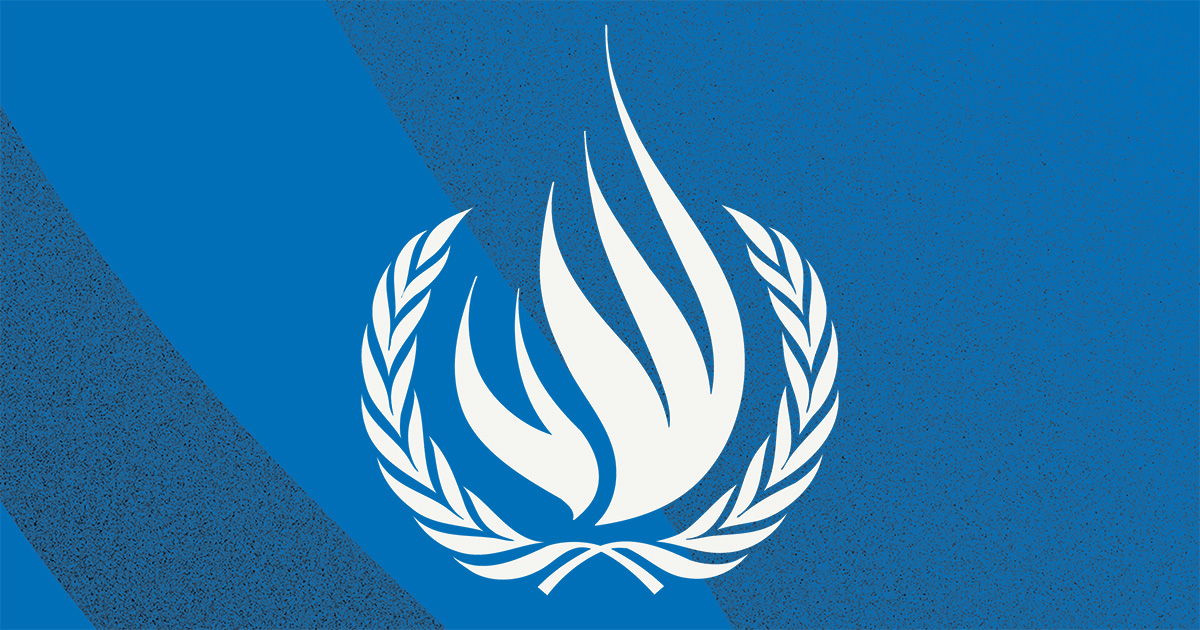
GENEVA (8 August 2022) – The preservation of indigenous peoples’ communities, values and ways of life depend on indigenous women and girls regaining their roles as leaders within their communities, a group of UN experts* said today, urging States to take affirmative action to guarantee their full public and political participation. On the occasion of the International Day of the World’s Indigenous Peoples, the experts issue the following joint statement:
“Indigenous women are active change agents in society and champions of sustainability. Indigenous women are custodians of a collective accumulation of scientific knowledge and technical skills related to food and agriculture, health and medicine, natural resource management, climate change, language, arts, crafts and spiritual practices. This scientific knowledge has a key role to play in safeguarding ecosystems and ensuring environmental justice and equity. Indigenous women’s in-depth understanding of botany and animal species is a powerful tool to mitigate against the catastrophic impacts of climate change.
The development, application, preservation and transmission of indigenous women"s knowledge is inextricably linked to the way indigenous women use their territory, lands and resources.
Because of their relationship with the land and natural environment and the marginalisation they face for being women and indigenous, they are disproportionally affected by the loss of lands, territories and resources due to climate change, conflicts, development and the creation of protected areas. In addition, multiple and intersecting forms of discrimination, as well as violence against women, create barriers to women’s development and use of their scientific knowledge including access to lands and resources, educational and employment opportunities, healthcare and political participation in national and local governance.
Indigenous women are disproportionately impacted by the ecological, economic and spiritual effects of extractive industries on their lands. Their knowledge is devalued when the natural resources they steward are exploited without their free, prior and informed consent. Loss of access to and ownership of lands deprives them of their community roles and occupations and threatens their ability to maintain and transmit their scientific and technical knowledge.
Historically, indigenous women have been leaders in their communities. The preservation of indigenous peoples’ communities, values and ways of life depend on indigenous women and girls regaining their roles as leaders within their communities.
States should ensure effective legal protection of indigenous women’s rights to lands, territory and resources and promote the meaningful participation of indigenous women in the management and regulation of their lands and resources. This must include their participation in consultation processes on administrative and legislative issues as well projects that may impact indigenous lands, territory and resources, with the aim of obtaining their free, prior and informed consent.
States should take affirmative measures to guarantee equal and full public and political participation of indigenous women, including by establishing and strengthening institutions for indigenous women in leadership roles.”
ENDS
*The experts:
Mr. Francisco Cali Tzay, was appointed Special Rapporteur on the rights of indigenous peoples in March 2020 and took up the role on 1 May 2020. A Mayan Cakchiquel from Guatemala, he has represented indigenous peoples at the United Nations since the early 1980s, addressing human rights violations against indigenous peoples in Guatemala and around the world.
Special Rapporteurs are part of what is known as the Special Procedures of the Human Rights Council. Special Procedures, the largest body of independent experts in the UN Human Rights system, is the general name of the Council’s independent fact-finding and monitoring mechanisms that address either specific country situations or thematic issues in all parts of the world. Special Procedures’ experts work on a voluntary basis; they are not UN staff and do not receive a salary for their work. They are independent from any government or organization and serve in their individual capacity.
The Expert Mechanism on the Rights of Indigenous Peoples is a subsidiary body of the Human Rights Council. Its mandate is to provide the Council with expertise and advice on the rights of indigenous peoples as set out in the United Nations Declaration on the Rights of Indigenous Peoples, and to assist Member States in achieving the ends of the Declaration through the promotion, protection and fulfilment of the rights of indigenous peoples. It is composed of seven independent experts serving in their personal capacities and is currently chaired by Mr Binota Moy Dhamai.
The UN Voluntary Fund for Indigenous Peoples was established pursuant to General Assembly resolution 40/131 of 13 December 1985; mandated to provide support to help representatives of indigenous communities and organizations to participate in UN mechanisms and processes most relevant to indigenous issues. The Fund is currently composed of 7 indigenous experts serving in their own personal capacities, and currently chaired by Ms. Marjolaine Etienne.










